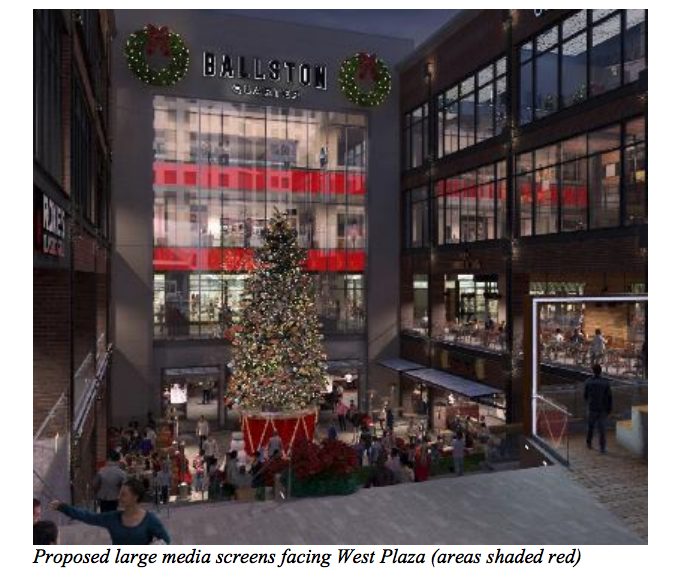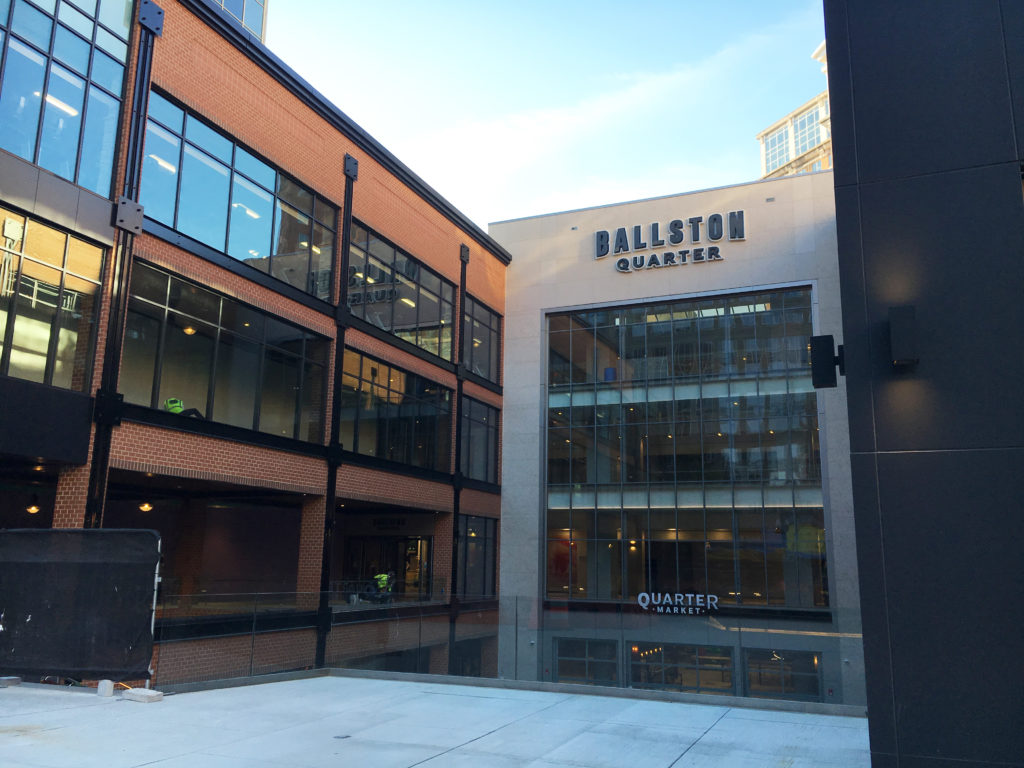(Updated on 3/18/19) Arlington officials have unanimously approved an incentive package offered to lure Amazon to the county, after hearing impassioned public testimony both for and against the tech giant’s “HQ2” plans.
The vote clears the way for the company to officially begin developing the site as early as this year.
The Arlington County Board voted 5-0 to approve the incentive plan after Board’s regularly-scheduled Saturday meeting stretched on for nearly twelve hours and disruptions from angry protestors continued until Chair Christian Dorsey called multiple recesses to quell the shouting.
Board member Libby Garvey acknowledged over booing that the incentive plan was “not perfect” but said it was “overwhelmingly” good for Arlington.
Board Member Erik Gutshall said “would not vote for anything that was not a clear and overwhelming win for Arlington.”
After Amazon representatives were ushered into a back room during an earlier outburst, Board members sat back on the dais and spoke for a few minutes about the tensions in the room, which was quiet for the first time that day.
“What I’m sensing is a real concern about loss and vulnerability,” said Dorsey, who noted that “the history” of Arlington neighborhoods was that of gentrification. “We never really had a way to stop it. I know it’s maybe attractive to thinking saying no to Amazon stops it. It doesn’t.”
Protests continued after the back-and-forth, with shouts of “shame!” peppering the Board members’ final remarks on the dais. Longtime D.C. protestor Chris Otten was escorted out and arrested after an expletive-ridden tirade aimed at the Board.
The incentive package grants an estimated $23 million in incentives to Amazon over the next 15 years if the company fills 6 million square feet of office space by 2035. It also includes a plan to fund $28 million in transportation upgrades near Amazon’s headquarters over the next decade via use of Crystal City’s Tax Increment Financing district.
The Board’s vote came after nearly five hours of public comment from more than 100 people. County staff said it was first time they’ve allowed speakers to sign-up ahead of time in a bid to control crowding.
The Board also questioned Amazon’s head of economic development Holly Sullivan.
Board members Katie Cristol and Dorsey both asked how Amazon planned to enforce labor laws in light of the subcontractor electrical Power Design, which is likely to help build the headquarters and is currently being sued by the D.C. Attorney General for “cheating” wages from 535 employees.
Sullivan responded that the company has had one meeting with a “building trade” and is working to “develop a workforce agreement.”
One of Arlington’s state legislators, Del. Mark Levine, told ARLnow he wanted the Board to delay their vote because he’s “become concerned” that Amazon still hasn’t agreed to that labor commitment.
“The fact that they’re not willing to sign even a memorandum… makes me concerned that they’re not going to be fair to their workers,” said Levine, echoing concerns from electrician and construction unions that testified earlier today.
Amazon also drew criticism for potentially shrinking affordable housing in the region which is already squeezed. Several landlords and real estate firms expressed support of the company locating to Pentagon City and Crystal City, but other speakers shared worries that rent prices are already rising.
“When we have community that isn’t transient, that has staying power, we have a stronger community.” said Page Cooper, who said her 13-month lease shrunk to 8 months when it came time to renew last year.
Supporters said the economic growth from Amazon’s promise of 25,000 is sorely needed. It’s also a number Dorsey has said could increase in light of Amazon cancelling its plans for a second headquarters in New York City.
The county “needs these jobs” and that is “well positioned to integrate Amazon,” due to the area’s public transit system, said Chuck, Executive Director of the Metropolitan Washington Council of Governments.
Steve Cooper, a board member at the Arlington Chamber of Commerce, compared Arlington — long a community with government as its top employers — to his hometown in Detroit.
“Detroit has suffered from being a one-industry town now for six decades,” he said, adding, “Arlington will never be Detroit because we have a chance to diversity.”
The crowd was roughly equally split between those for and against the incentive package — and Board Chair Christian Dorsey repeatedly tried to quell laughter and applause, with emotions running high as the day wore on.
Douglas Park resident Kinsey Fabrizio was praising the board for its “public outreach” when loud laughter from activists, who criticized what they described as lack of community input, drowned out the rest of her testimony.
“This is not WWE,” Dorsey said as he quieted the crowd.
(more…)


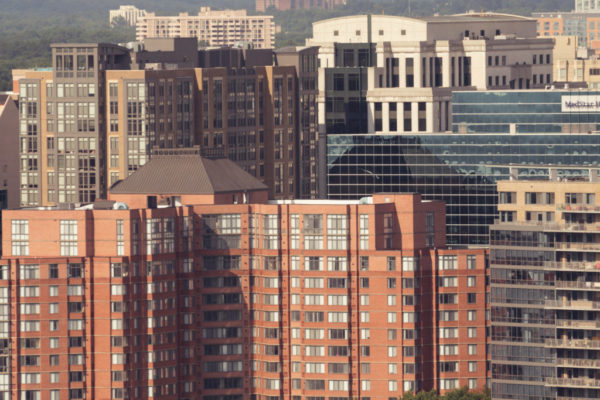
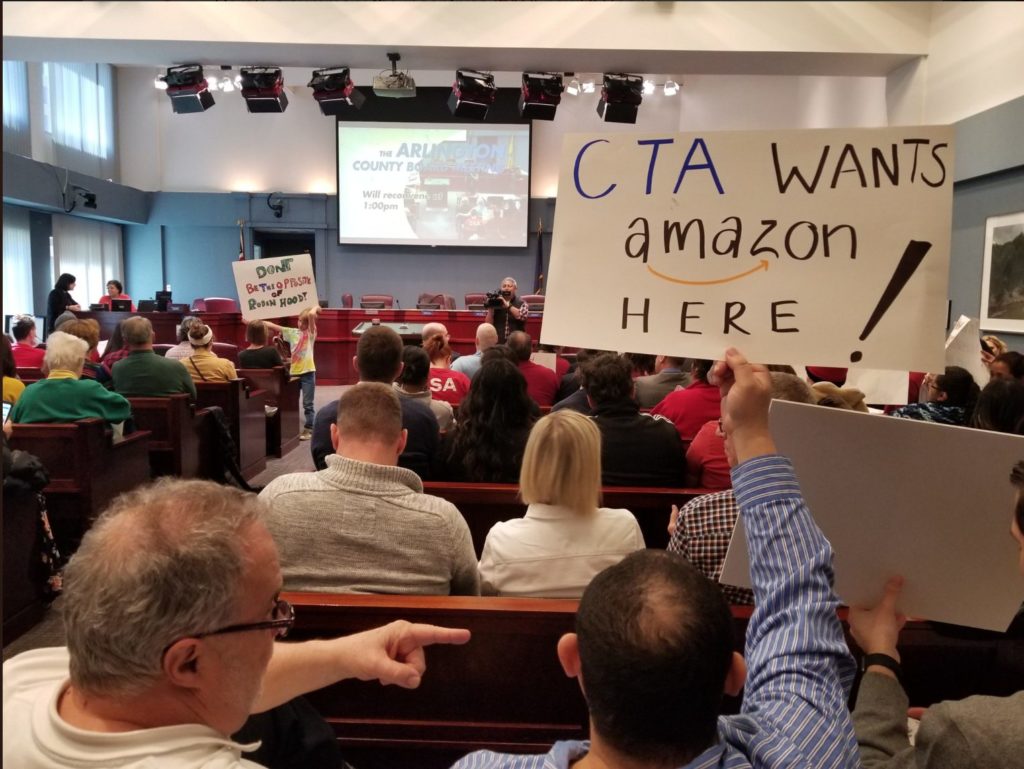
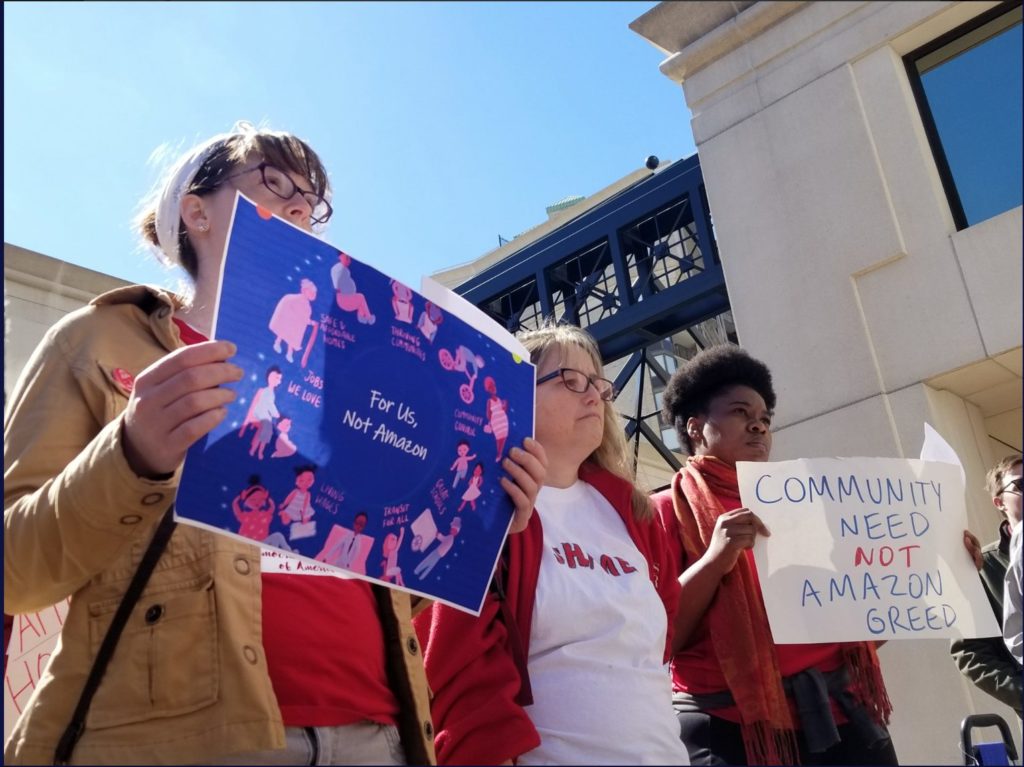
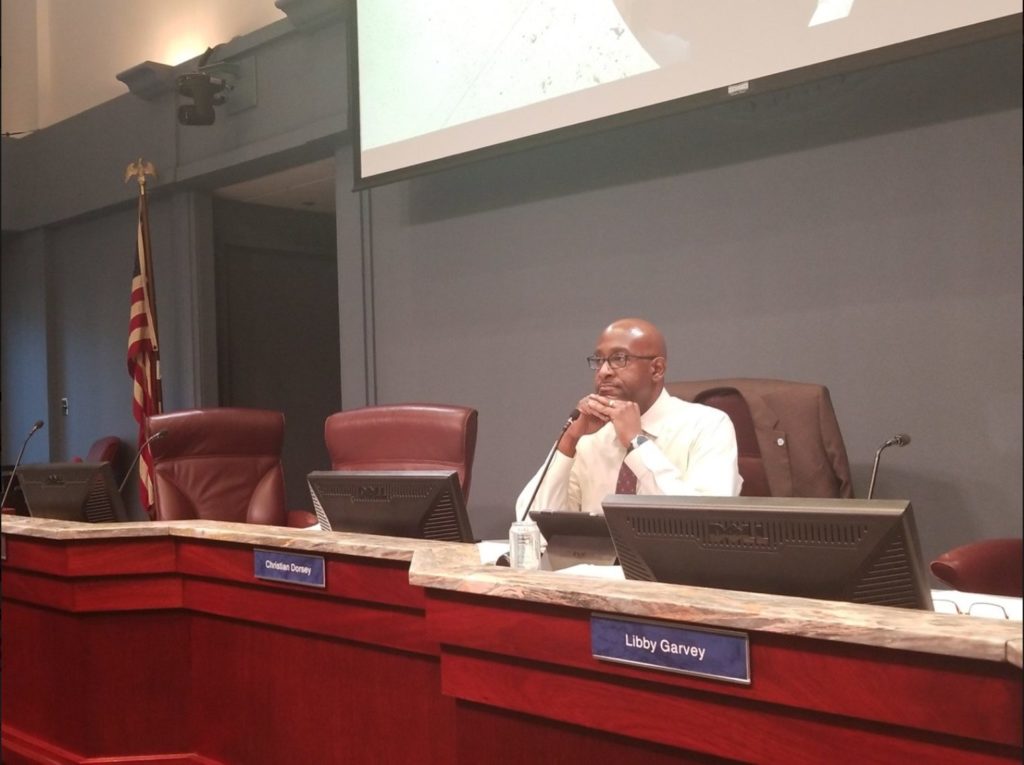
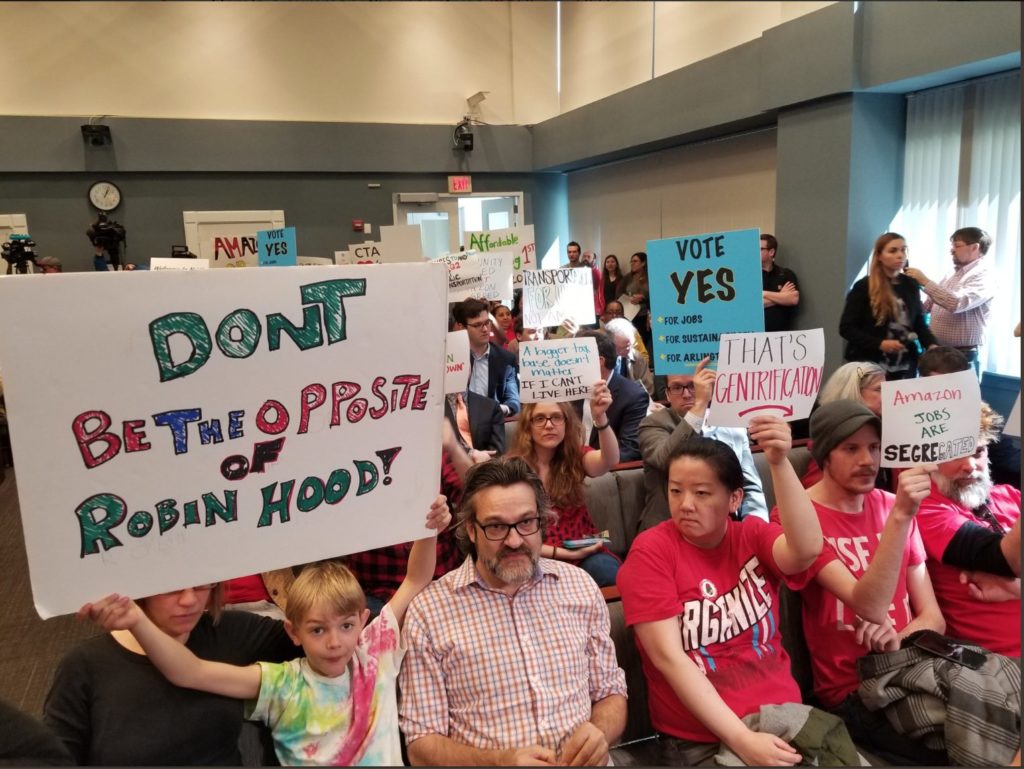
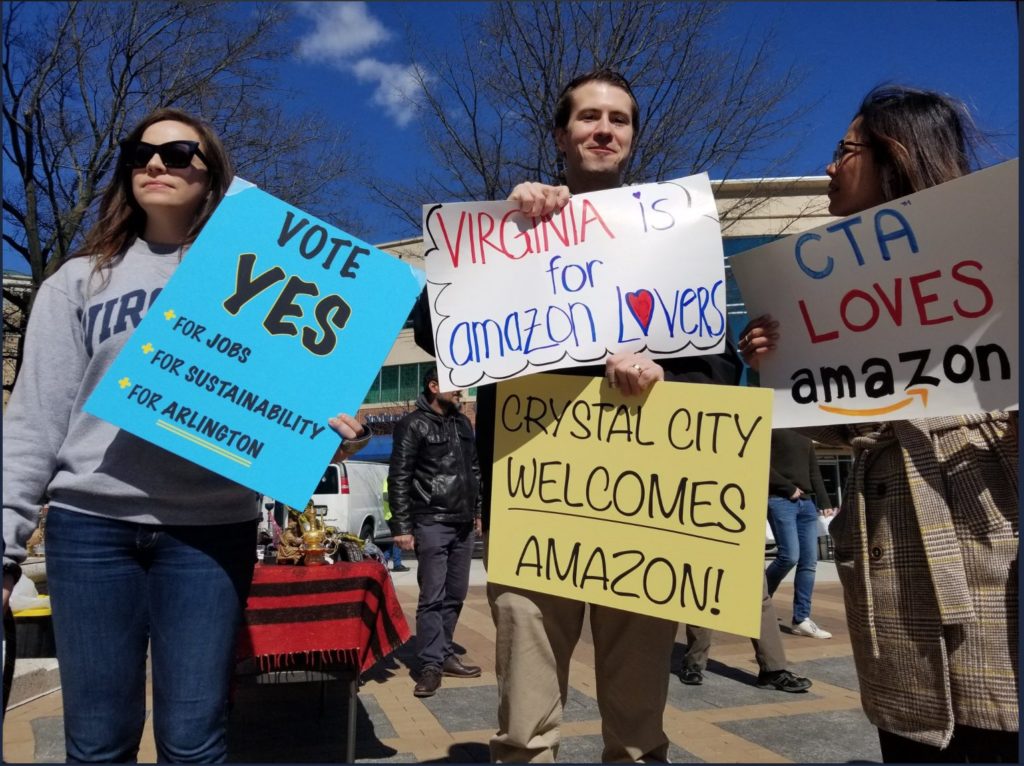


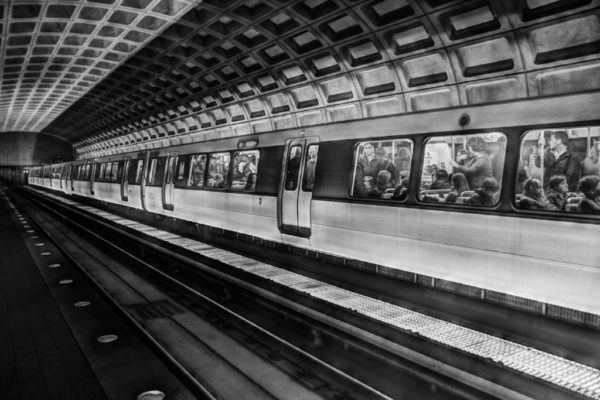

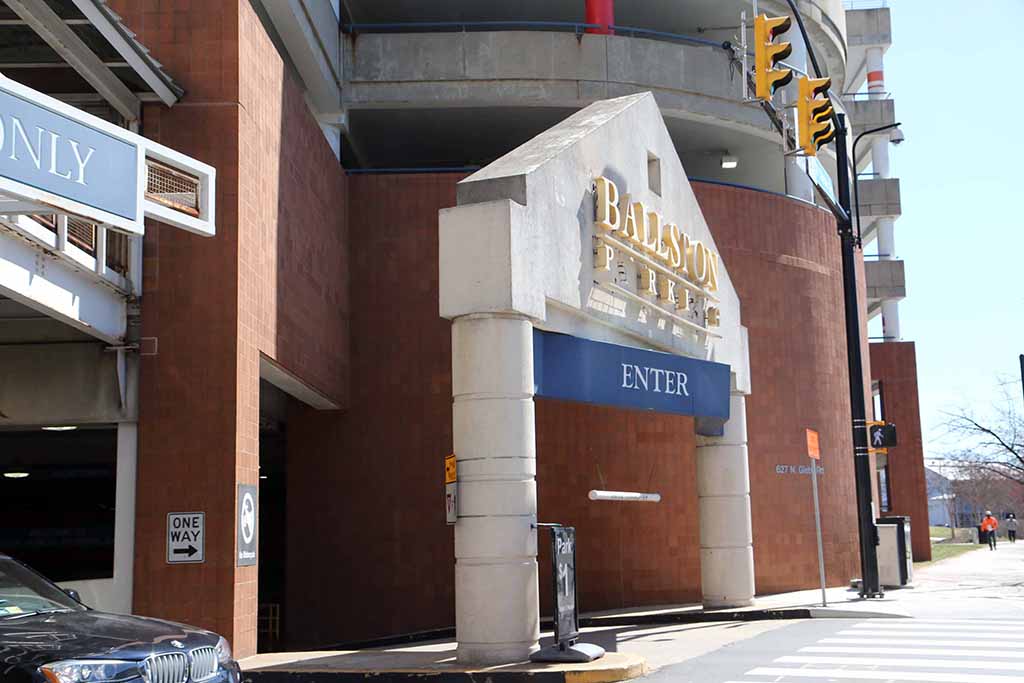
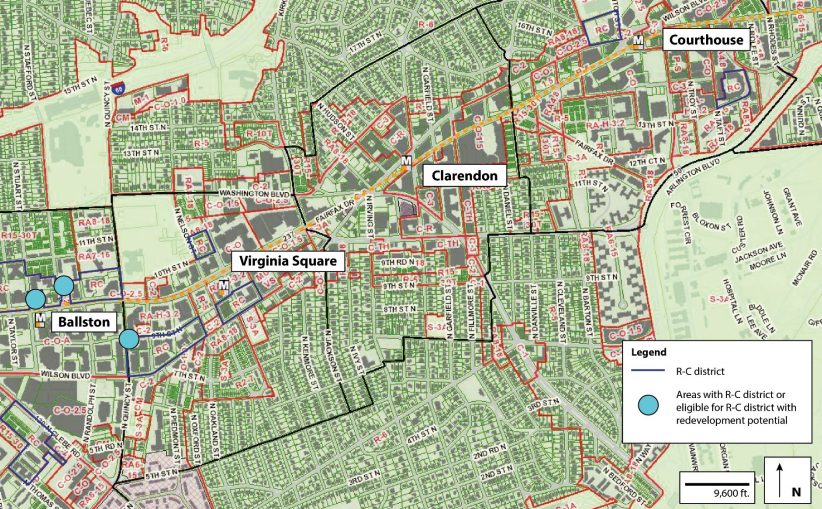
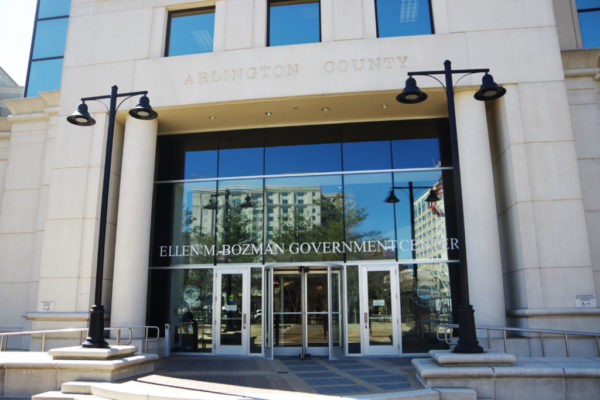
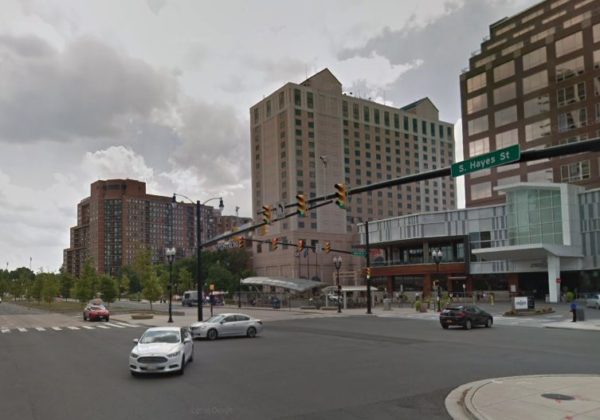
 Peter’s Take is a weekly opinion column. The views and opinions expressed in this column are those of the author and do not necessarily reflect the views of
Peter’s Take is a weekly opinion column. The views and opinions expressed in this column are those of the author and do not necessarily reflect the views of 